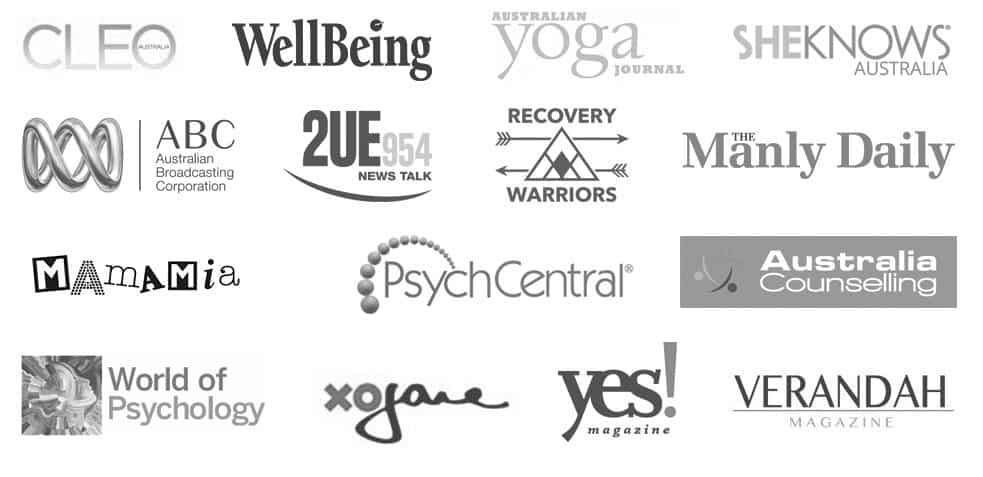
Feeling good enough is hard when times are tough. Though our normal lives didn’t stop when the novel coronavirus (which causes the illness COVID-19) began spreading across the globe in early 2020, they got immensely more complicated. Our lives can be challenging in normal times, but right now we’re striving to survive through an unprecedented emergency.
Our allostatic loads — the accumulation of physical responses in our bodies to stress — have also just increased enormously. For many of us, that can look like depression, brain fog, aimlessness, anxiety, loneliness or a general lack of resilience.
What’s more, we’re being bombarded with both bad news and advice on what we should be doing (or not doing) about it. Eat this, not that! Pick up a new hobby with all your (assumed) free time! Learn to play an instrument! Home school your children perfectly! Support local businesses! Don’t make unnecessary trips or purchases!
The tug-of-war between the expectations we might have of ourselves, expectations set by our Facebook friends list or the media, and what we’re able to accomplish in reality can be exhausting. Here are eight strategies for a healthy body image to put in your back pocket and use any time to feel like you’re enough, no matter what the world throws at you this year.
1. Remember that times are tough for everyone
When you’re isolated and experiencing other people by way of their social media presences, it can be easy to think that you’re the problem and not good enough. Maybe you just need to buck up.
But the truth is that every single person on this planet is affected by the pandemic. Not only are you not alone if you’re feeling overwhelmed, but you’re in good company — millions of other people are, too.
This is a brand-new situation for all of us, and we all have to figure it out in our own ways. For some people, that will look like making their lives look magically easy online, but in the background, they’re probably feeling some of the same emotions as you, and dealing with the same kinds of problems.
2. Remember that everyone’s situation is different
In the same way that everyone is experiencing the same crisis, but may react differently online, each of our situations right now will look different. Here are just a few of the factors that you might be dealing with:
- Taking care of young children or elderly relatives
- Home schooling school-age children
- Being out of work
- Being much busier at work than usual
- Experiencing money hardships
- Caring for people who are ill
- Telecommuting
- Needing to leave your home regularly to work
- Being ill or recovering yourself
- Dealing with existing chronic illnesses or conditions, or having new ones pop up now
- Being pregnant or helping a pregnant loved one
- Feeling rushed and too busy
- Feeling empty and not busy enough
- Feeling “Zoomed out” from too many video conferences
- Dealing with emotional hardships related to introversion or extroversion
And in fact, you might even be dealing with most of these factors put together.
What this means is that no matter how well-intentioned, the advice you’re receiving from other people or the media may not be a good fit for you. The same goes for any expectations you may feel that others, or society, have for you.
You get to decide what works best for you, always, but especially in this time. Trust your gut.
3. Don’t overdose on news
In this media-driven world, it’s easy to immerse yourself in dozens of different media sources, from TV news to YouTube commentary to long analyses in blog posts to podcasts.
Staying up to date on the situation, both globally and in your local area, is fine, to a point. But don’t let the news draw you in so much that staying informed becomes an obsession.
Find one to three reputable media sources — one local, one national/global, and one commentary or analysis, if you’re interested in detailed articles — and stick to checking them once per day at most.
4. Follow positive and uplifting media — but stay realistic
Be sure to balance out your share of bad news with some uplifting sources, to help keep your perspective. Positive.News is a good source for current stories about good news, while Colossal and Bored Panda provide hours of funny and interesting stories, photos and artwork.
If the pandemic has you feeling uncertain or stressed about your body or your food intake, try diversifying your media intake with some body-positive Instagram accounts that tackle body image and self-worth head on. Try browsing one of these lists, or try a few of my favorites:
It’s normal and okay to want some distraction from what’s going on around us, but don’t feel like you need to be positive and cheerful every second of the day, either.
5. Avoid toxic positivity
How on earth can staying positive be toxic? Keeping an upbeat outlook can be an important coping strategy, but taken to extremes, it can prevent us from feeling all of our feelings and negate other people’s feelings as well.
Psychotherapist Whitney Hawkins Goodman has come up with a number of examples of phrases that can be validating or hopeful, and contrasted them with statements containing toxic positivity. For example:
- Validating: “It’s probably really hard to see any good in this situation. We’ll make sense of it later.”
- Toxic: “See the good in everything.”
Remember that it’s okay to feel all of your feelings, not just the pretty, happy, “good” feelings. When we spend time letting ourselves feel “bad” emotions (like anger, rage, despair and sadness), our minds and bodies are able to process them, experience them and let them go.
6. Don’t let perfect be the enemy of the good
Did you get fed today? Did your children or pets, if you have any? Do you have shelter and clean water to drink? If so, you’re doing great!
No, seriously. If you do nothing but survive today, you’re doing plenty. That’s all that many, many people will be able to do during this time, and that’s completely okay. Living through a global crisis is stressful, and everyone will respond to that stress differently.
I know it looks like everyone online is learning to play the violin or becoming a TikTok star or speaking a new language, but those people — amazing as they are — are outliers. Most people are just getting through their days as best they can, and in some ways that’s the smart thing that you can do. Not overextending yourself right now will help give you the resilience and healthy body image to see yourself through to easier times.
7. Eat foods that nourish your body AND mind
A healthy diet can include all kinds of foods! The coronavirus restrictions are the worst time to start a diet or try to lose weight. Not only do we not have a scientifically-proven way to make bodies smaller in the long term, adding a lack of nourishment will make the stress you’re experiencing worse.
For some people, this time of isolation may trigger the desire to restrict food, eat more than you normally might, or experience other behaviors around food that you might find strange or worrying.
Be kind to yourself if you find yourself emotionally eating. Though it can affect our body image and self worth in the moment, emotional eating is a perfectly valid response to stress and trauma, and is one way your body and brain try to take care of you.
If you’ve been feeling out of control around food, bingeing or restricting, take a look at whether an eating disorder therapist or coach may be helpful for you and your body.
8. Trust your judgment
As we discussed earlier, you know your own situation best. As the world figures out how to re-open and return to some semblance of normality, you’ll see lots of pushy articles recommending that you do this or that — and other articles judging every single approach. Take them all with a grain of salt and proceed in a way that is safe and healthy for you (and follows hygiene and safety guidelines for your geographical area). Make space each day to connect with your true, wise self – she has all the answers you need.
9. Learn how to befriend your body
When we’re anxious and stressed, we become dysregulated and disconnected from body, feelings, mind and soul. Rather than focusing on how many calories we consumed today or how to hide the cellulite on our legs – it’s time to dive deeper. Jodie gale has created a free 65-page eBook called 4 Ways to Befriend Your Body. It’s designed to lead you through improving your body image and self worth by coming home to, and befriending your body.

Leave a Reply